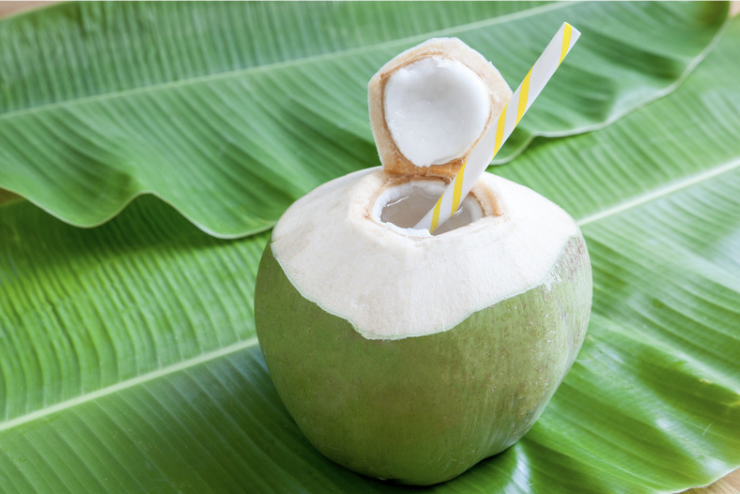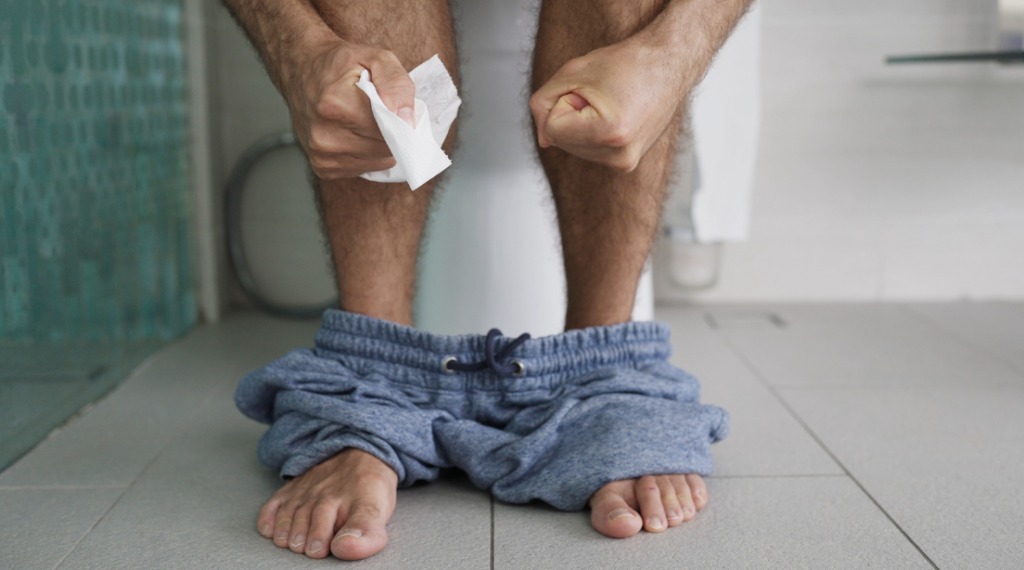
Private Health: In-Villa Testing for STD’s In Bali
Private Health: In-Villa Testing for STD’s in Bali The Need for Discreet, Professional STD Testing in Bali Bali is globally
So, Bali Belly has crashed your island party. Don’t panic! While this uninvited guest might have you temporarily trading beach views for bathroom tiles, we’ve got your back.
You came to Bali for adventures, not to become best friends with your hotel toilet. But don’t worry! We’re about to equip you with the ultimate Bali Belly survival guide.
Ready to kick this tummy troublemaker to the curb and reclaim your spot in paradise? Let’s dive into the nitty-gritty of treating Bali Belly. We’ll show you how to bounce back faster than you can say “pass the coconut water.”
From tried-and-true remedies to local secrets, we’ve got everything you need to know about conquering Bali Belly. So buckle up (but maybe stay close to the bathroom) as we embark on this recovery journey together.
By the end of this guide, you’ll be armed with the knowledge to send Bali Belly packing and get back to living your best Bali life.
Before we dive into treatment options, let’s quickly recap what Bali Belly is. Bali Belly, also known as traveler’s diarrhea, is a gastrointestinal illness that many tourists experience when they visit Bali. It’s usually caused by consuming contaminated food or water, leading to symptoms like diarrhea, stomach cramps, nausea, and vomiting. While it’s generally not severe, it can be incredibly uncomfortable and put a damper on your vacation plans.

When you’re dealing with Bali Belly, the main goal is to recover quickly so you can get back to enjoying your time in Bali. Here’s a step-by-step guide on how to treat Bali Belly effectively:
One of the most important things you can do when you have Bali Belly is to stay hydrated. Diarrhea and vomiting can lead to dehydration, which can make you feel even worse. Make sure to drink plenty of water, but avoid tap water, which could worsen the condition. Instead, stick to bottled or purified water.
If plain water isn’t enough to keep you hydrated, you can use oral rehydration salts (ORS). These are available at most pharmacies in Bali and help replenish lost electrolytes, which are essential for maintaining your body’s balance.
For a faster recovery, consider opting for IV Therapy at Trishnanda Care Centre. Our Bali Belly IV package provides immediate hydration directly into your bloodstream, ensuring quick relief from dehydration and helping you feel better faster.
While it might be tempting to skip meals when your stomach is in turmoil, it’s important to eat small, bland meals to keep your energy levels up. The BRAT diet—Bananas, Rice, Applesauce, and Toast—is a go-to for many people dealing with stomach issues. These foods are gentle on your stomach and can help firm up your stool.
Avoid dairy products, spicy foods, greasy foods, and anything acidic, as these can further irritate your stomach. Stick to easily digestible foods like boiled potatoes, plain pasta, or clear broths until your symptoms improve.
Your body needs energy to fight off the infection causing Bali Belly, so getting plenty of rest is crucial. Avoid strenuous activities, stay in bed, and let your body recover. Stress and fatigue can exacerbate symptoms, so take it easy and focus on getting better.
If you’re staying in a villa or hotel, take advantage of Trishnanda Care Centre’s Doctor On Call service. A qualified doctor can visit you, provide a thorough examination, and offer tailored advice on how to manage your symptoms without you having to leave the comfort of your accommodation.
Over-the-counter medications can be a lifesaver when dealing with Bali Belly. Here are a few options:
While most cases of Bali Belly resolve on their own within a few days, there are times when you should seek medical attention. If you experience any of the following symptoms, it’s important to see a doctor:
Trishnanda Care Centre offers Doctor On Call services, where a healthcare professional can assess your symptoms, provide the necessary treatments, and help you get back on your feet quickly. If needed, our team can also administer IV hydration and medications to ensure a swift recovery.

If you prefer to treat Bali Belly naturally or want to complement conventional treatments, here are some home remedies and natural options that can help alleviate symptoms:
Ginger has natural anti-inflammatory properties and can help soothe nausea and stomach cramps. Sipping on ginger tea can provide relief from Bali Belly symptoms. Simply steep a few slices of fresh ginger in hot water for 10 minutes, then sip slowly.
Coconut water is a great natural remedy for rehydration. It’s packed with electrolytes like potassium and sodium, which help replenish what you’ve lost due to diarrhea. Plus, it’s easy to find in Bali and tastes refreshing.
Apple cider vinegar is believed to have antibacterial properties that can help fight off the bacteria causing Bali Belly. Mix a tablespoon of apple cider vinegar in a glass of water and drink it before meals to help with digestion. Just be sure not to overdo it, as the acidity can irritate your stomach.
Peppermint tea is known for its ability to calm the stomach and reduce bloating. Drinking a cup of peppermint tea can help ease stomach cramps and discomfort associated with Bali Belly.
Turmeric is a natural anti-inflammatory and antioxidant that can help reduce inflammation in your gut. You can add turmeric to your food, take it as a supplement, or make a turmeric tea to help speed up your recovery.
As the saying goes, prevention is better than cure. Here’s how you can reduce your chances of getting Bali Belly in the first place:
Be cautious with the food you eat while in Bali. Avoid street food unless it’s from a vendor with a high turnover of customers, which means the food is likely fresh. Stick to restaurants that are known for their cleanliness and good hygiene practices.
Always drink bottled or filtered water in Bali. Avoid tap water, including ice cubes made from tap water, as they can contain harmful bacteria. When in doubt, choose carbonated water over still water, as it’s less likely to be contaminated.
Wash your hands regularly with soap and water, especially before eating and after using the bathroom. If soap and water aren’t available, use hand sanitizer with at least 60% alcohol.
Some travelers take activated charcoal tablets before meals to help prevent Bali Belly. While the effectiveness of this method is debated, activated charcoal can bind to toxins in your gut and may reduce the risk of getting sick.
If you’re eating fruits and vegetables, make sure they’re peeled or thoroughly washed with clean water. Avoid salads and raw vegetables unless you’re sure they’ve been prepared with filtered water.

If you start experiencing symptoms of Bali Belly, here’s a quick action plan to help you manage the situation effectively:
The quickest way to recover from Bali Belly is to stay hydrated, eat bland foods, get plenty of rest, and consider IV Therapy for severe dehydration. If symptoms persist, seek medical attention.
Bali Belly typically lasts between 1 to 3 days, but it can sometimes linger for up to a week. Most people recover on their own, but if symptoms persist, it’s best to see a doctor.
There’s no specific cure for Bali Belly, but staying hydrated, resting, and eating the right foods can help you recover quickly. Over-the-counter medications like Imodium and activated charcoal can also provide relief.
After recovering from Bali Belly, continue taking probiotics to restore the good bacteria in your gut. Eat a balanced diet with plenty of fiber to help regulate your digestion.
If your symptoms last longer than a week, if you have a high fever, or if you notice blood in your stool, it’s time to see a doctor. Trishnanda Care Centre offers Doctor On Call services, so you can get expert help without leaving your accommodation.
While there’s no surefire way to prevent Bali Belly, you can reduce your risk by practicing good hygiene, drinking bottled water, and being cautious with what you eat. Activated charcoal tablets may also help as a preventive measure.
Bali Belly can be an unpleasant experience, but with the right treatment and precautions, you can recover quickly and get back to enjoying your time in Bali. Remember to stay hydrated, eat bland foods, rest, and seek medical attention if needed. Trishnanda Care Centre is here to support you with expert care, whether it’s through our IV Therapy, Doctor On Call, or personalized advice. Don’t let Bali Belly ruin your trip—take the necessary steps to treat it effectively and enjoy the rest of your adventure! We’re only one simple WhatsApp message away!

Private Health: In-Villa Testing for STD’s in Bali The Need for Discreet, Professional STD Testing in Bali Bali is globally

Medical Records for Insurance Claims: A Step-by-Step Guide to Getting Your Refund Navigating the insurance claim process after a medical
Contact Our Doctor Now